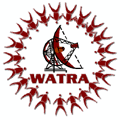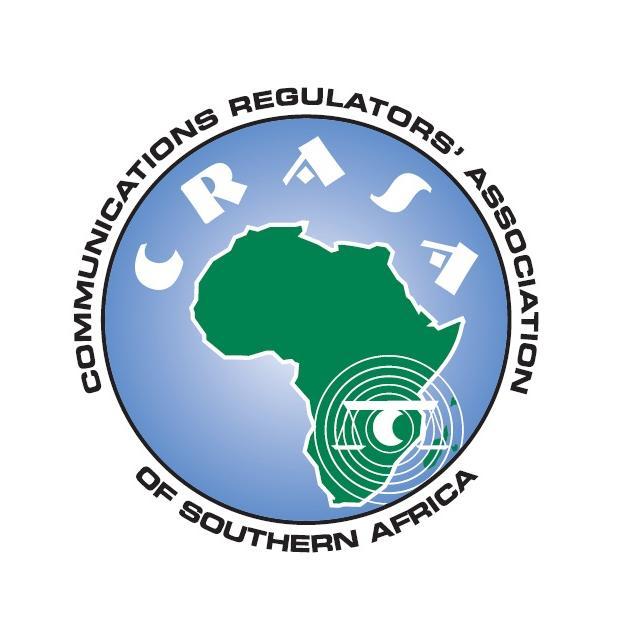What are the most important tasks for the Regional Regulatory bodies in Africa?
The three regional regulatory bodies tackle similar questions. SPIDER caught up with representatives from EACO, CRASA and WATRA to get the latest news and reflections on what is going on in the Eastern Southern and Western regions of Africa.

We can see this as another opportunity, to engage our members and people from a wider reach. With online events you can engage more people as they do not have to travel.
EACO has several projects that aim to bring the continent together on key issues says Sarah Kabahuma, Liasons manager, Information and Communication Technology. One of the central projects is to collect key telecom indicators for a regional database with telecom operators being the first group of stakeholders to contribute data. E-waste is another key issue that EACO is progressing throughout the region. Based on the strategy formulated in 2017 EACO continues to engage various stakeholder and hold an annual workshop.
During 2020 EACO has been able to do a lot of harmonisation through regional workshops. In the past year we have had 3-4 workshops that brought the whole region to deliberate on issues. Despite the COVID-19 restrictions, we kept the fire burning.
Overall the pandemic has meant limited travel and interaction, cancelled events, delays in delivery on practical work. But on the other hand, those who could have embraced working from home. Both as an organization and as a region. Online meetings are now normal and for me it has created a lot of opportunity for collaboration. There was a restriction of travel, because it had to come out of the budget but now there are a lot of collaboration and in some cases collaborations are thriving. We can see this as another opportunity, to engage our members and people from a wider reach. With online events you can engage more people as they do not have to travel.

One of the challenges we are currently facing in the region is to harmonise the approach to 5G. How do we make 5G available for a population of 330 million people?
WATRA West Africa Telecommunications Regulators Assembly has 16 member countries and spans several languages in West Africa. WATRA recently bid farewell to Laminou Elhadji Maman as the Executive Director and welcomed Aliyu Yusuf Aboki to the position. Laminou was kind enough to take some time to talk to SPIDER bout the current priorities of WATRA.
Roaming continues to be a central issue for the region that WATRA continues topromote. The free roaming area started with 5 countries in 2007 and now we are 9 in the free roaming area network. Other countries have tried to join but it is difficult as International calls incur taxes, and therefore revenue to the state. So to have free roaming, this tax has to be removed and this often becomes a struggle between the ministry of ICT and the Ministry of Interior having opposite goals.
One of the challenges we are currently facing in the region is to harmonise the approach to 5G. How do we make 5G available for a population of 330 million people? Data has proven to be a key service. Operators without good data services are losing users as people prefer to use data and WhatsApp. Data has really become a key product in the region. One of the continued challenges in Africa is illiteracy, which is one reason why data services like WhatsApp are big. But availability of data diminishes the challenge of illiteracy. In this way it is truly a success.
The COVID-19 pandemic has not only brought about challenges but also certain improvements. Today WATRA can easily conduct training conferences and meetings without meeting physically. Because the budget for travel at the National Regulatory Authorities is limited, not everyone who wanted to join WATRA workshops, could do so. But now that online meetings are normal everyone who has time to join can do so. This is one of the positive effects of COVID.

Another important issue is consumer protection, it has also come to the forefront during the pandemic. In various member states there are many applications that use personal data without seeking consent.
CRASA Communications Regulators’ Association of Southern Africa unites the work across 13 countries under SADC.
One of the main issues that CRASA has been working on was to bring down prices on roaming. 10 years ago, only a few regulators were collaborating on this project. If you are pre-paid customer you could not roam, only if you are post-paid customer, that is if you have a subscription. Today there is a big improvement and 85% of pre-paid customers in the region can roam.
Roaming is an aspect of affordability, another central issue is access. During COVID and the shift to working and schooling from home has projected broadband into the spotlight. Broadband are no longer a luxury, but recognised as essential. But the reality is that the infrastructure is not mature and there are gaps. This was something that we all felt during the beginning of the pandemic in the Spring 2020.
Another important issue is consumer protection, it has also come to the forefront during the pandemic. In various member states there are many applications that use personal data without seeking consent. When you are at the shop they collect all of the data and how they use it. In South Africa they are using this kind of feature for contact tracing to fight COVID-19 but there is no clear regulation of this. Many countries in the SADC region do not have data protection legislation. My worry is how is this information used? Even if it is collected for a very important thing it is unclear. The pandemic has really brought consumer protection to the forefront in so many ways.
Affordability is also coming to the fore, in a somewhat different way. The gap between the “haves” and “have nots” is very wide and it is coming to new areas like online learning. Children in private schools can learn online, but children in public school have to wait until they go back to school in this way falling further behind. There is also another side to this. As schools are allowing children to have mobile phones in schools, but what goes on these phones is not always safe. We have a lot of education and awareness raising to do about online child protection. There is a lot of excitement and a lot of risk but there has not been a lot of awareness about the safety of children online. In 2021 CRASA will focus on data protection and security online especially online protection of children.
